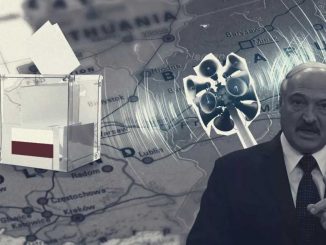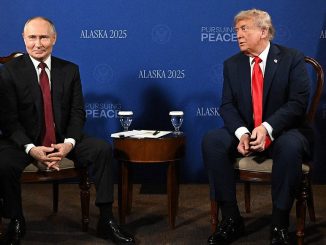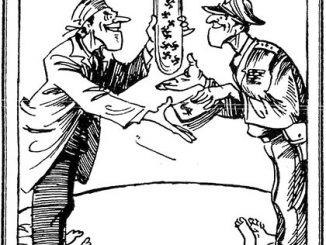President Donald Trump’s state visit to the United Kingdom from September 16 to 18, 2025, though marked by the pomp of a royal reception orchestrated by King Charles III, ended in a diplomatic earthquake for European allies. Welcomed in London with full honors by King Charles III, the visit was seen as an opportunity to influence American policy towards Ukraine.
Despite the royal splendor and British diplomatic efforts, Trump maintained his ambiguous positions on the Ukrainian conflict, stating he was simply disappointed in Vladimir Putin without announcing any concrete measures. For the first time, he implicitly acknowledged that his initial statements were pretentious, but this admission did not lead to substantial policy changes.
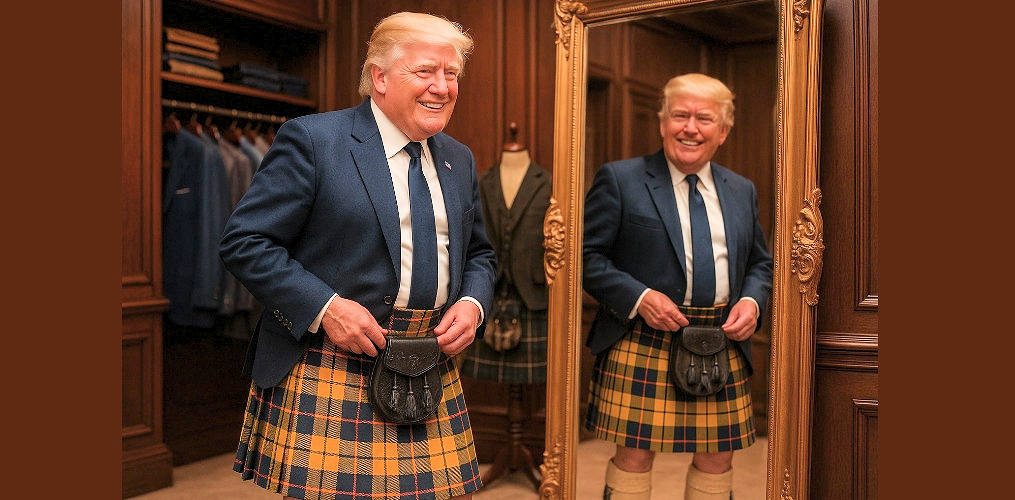
On the contrary, Trump confirmed the reduction of American aid to Central and Eastern European countries directly threatened by Russia. The British and American press, as well as specialized institutes, unanimously highlighted the failure of this attempt at diplomatic influence. The Times called the strategy a “risky move,” while the BBC pointed to the “growing gap between the United States and Ukraine.”
Analysts at Chatham House and the Council on Foreign Relations confirmed that Trump remained “impervious to traditional diplomatic pressures.” This sequence perfectly illustrates the limits of European soft power when faced with an administration that favors direct power dynamics over diplomatic subtleties, forcing Europe to rethink its strategies of influence and consider greater strategic autonomy.
Far from the hoped-for gesture of appeasement on the Ukrainian issue, the president confirmed his transactional doctrine on collective security. The visit was immediately followed by the announcement of a “strategic reassessment” of U.S. security aid to Europe, widely interpreted as a partial disengagement.
This decision, coupled with ambivalent rhetoric towards Russian President Vladimir Putin, provoked profound reactions, ranging from dismay to anger, in the British and American press and specialized institutes.
Press review by Joël-François Dumont — Paris, September 19, 2025 —
Table of Contents
1. The British Press: Pomp and Circumstance vs. Strategic Brutality
The British media, across the political spectrum, highlighted the stark contrast between the splendor of the royal welcome and the coldness of the political results. The general consensus was a failure of British diplomacy, which had banked on the prestige of the monarchy to coax a president immune to the charms of tradition.
The Times, in its post-visit analysis, described Trump’s strategy as a “risky move,” noting that the American president “is not prepared to lose face” despite diplomatic pressure. This analysis highlights the relative failure of British diplomacy to significantly influence the American position.
The Financial Times pointed out the irony of the situation: while Trump was received with full royal honors, his concrete policy decisions ran counter to fundamental European interests. This dichotomy between diplomatic protocol and tangible political results illustrates the limits of traditional soft power against an American administration insensitive to classic diplomatic conventions.
The BBC, in its detailed analysis, emphasized the “growing gap between the United States and Ukraine,” suggesting that the royal visit had failed to bridge this widening chasm. This pessimistic conclusion reflects the general sentiment of the British press in the face of this high-level diplomatic failure.
The Center-Left Press: “The End of the Illusion”
The Guardian called the visit “a brutal lesson for a post-Brexit United Kingdom in search of influence.”[01] According to the daily, Prime Minister Keir Starmer’s government made a fundamental error in believing that pageantry could substitute for a power dynamic.
An editorialist wrote: “We offered carriages and banquets to receive an ultimatum in return. President Trump did not come to celebrate an alliance, but to present a bill for his protection.”[02] The paper particularly focused on Mr. Trump’s semantic concession, in which he implicitly admitted the excessive nature of his past threats to leave NATO, presenting it not as a mistake but as a “necessary initial negotiating tactic” to force the Europeans to pay. For The Guardian, this is proof that “the special relationship is now just a one-way transaction.”[01]
The Independent echoed this sentiment, headlining: “Humiliated by our Friend: Trump leaves with everything, leaves only bills.”[03] The analysis highlighted the untenable position of the United Kingdom, which obtained promises of technological investment in exchange for a deafening silence on the dismantling of continental security.
The Conservative Press: The “Special Relationship” in Ruins
For more conservative papers like The Times and The Daily Telegraph, the criticism focused on the strategic bankruptcy and national humiliation.
The Times noted in its main editorial that “Great Britain’s security does not begin at Dover, but on NATO’s eastern flank. By signaling that aid to Poland and the Baltic states is no longer guaranteed, President Trump has directly threatened our nation’s vital interests.”[04]
A Telegraph commentator was even more direct: “King Charles fulfilled his constitutional duty with impeccable grace. The Prime Minister, however, failed in his strategic duty. He welcomed a president who, barely departed, put a target on the backs of our most vulnerable allies.”[05] The disappointment expressed by Mr. Trump towards Putin, described as “theater for the cameras,” was deemed insufficient.06]
2. The American press: The ideological divide exposed
In the United States, interpretations of the visit and its consequences followed strictly partisan fault lines, reflecting the country’s deep division over America’s role in the world.
Traditional media: A strategic abandonment
The New York Times devoted a lengthy analysis to what it called “the doctrine of calculated disengagement.”[07] The newspaper explained that the decision to reduce aid was not a spur-of-the-moment decision, but the culmination of a worldview in which alliances are seen as financial liabilities. “By using the backdrop of Windsor to announce the de facto end of security aid as we know it, President Trump has given Vladimir Putin and Xi Jinping an invaluable gift, showing them that they can count on American weariness,” the article stated. [07]
The Washington Post warned of the long-term consequences: “The administration justifies this measure as ‘burden sharing.’ In reality, it creates a security vacuum that neither Germany, France, nor the United Kingdom can fill in the short term. It is an open invitation to aggression.”[08] CNN conducted numerous interviews with former diplomats and generals, who unanimously condemned the decision as “short-sighted” and “dangerously destabilizing.”[09]
Conservative media: A victory for “America First”
In contrast, the visit was portrayed as a huge success on Fox News and in the opinion pages of the Wall Street Journal. The maneuver was presented as a brilliant application of the principle of “Peace through Strength,” where strength consists of forcing allies to assume their own responsibilities.
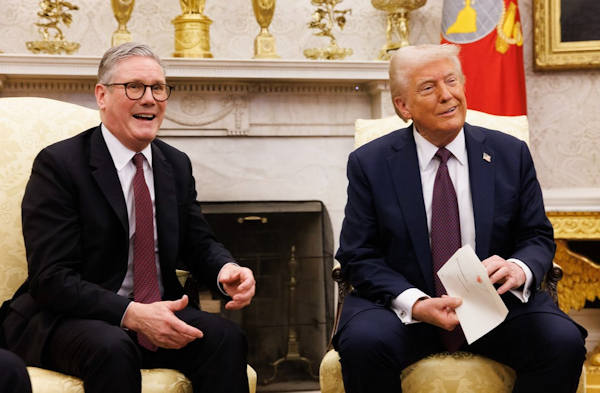
A Wall Street Journal editorialist argued that “President Trump has finally ended decades of foreign policy in which Europe outsourced its defense to the American taxpayer. By linking security to each ally’s economic and military performance, he is not destroying NATO, he is saving it from its own complacency.”[10] Fox News presented the reassessment of aid as a campaign promise kept. A star host said, “Our borders are more important than Ukraine’s. The president has been clear: we will no longer write blank checks to countries that refuse to pay their fair share. That’s what Americans voted for.”[11] Trump’s criticism of Putin was interpreted as a sign of a strong leader who does not hesitate to publicly rebuke even those with whom he has complex relationships.
3. Specialized institutes: Analysis of a changing world order
Think tanks quickly published in-depth analyses, highlighting the structural implications of the decisions announced after the visit.
British and American foreign policy institutes expressed similar analyses of the failure of this attempt at diplomatic influence. The Royal Institute of International Affairs (Chatham House) emphasized in its analyses that Trump remains “impervious to traditional diplomatic pressure,” confirming that even British royal prestige is not enough to change his fundamental geopolitical positions.
American analysts at the Council on Foreign Relations noted that the visit, despite its ceremonial success, had not produced any substantial change in US foreign policy. This conclusion echoes that of many observers who believe that Trump favors his personal relationships with authoritarian leaders at the expense of traditional Western alliances.
In the United Kingdom and Europe: An existential wake-up call
The London-based think tank Chatham House published an analysis entitled “The Transactional Alliance: After Trump’s visit, Europe is alone.”[12] The report concluded: “The royal pageantry failed to mask the reality: the American security guarantee is now conditional and revocable. For the states on the eastern flank, this is an existential threat that will force them to make drastic strategic choices, ranging from accelerated remilitarization to a possible search for accommodations with Russia.”[12][13]
The European Council on Foreign Relations (ECFR) has emphasized that this decision will accelerate the fragmentation of Europe. “We are likely to see a division between a ‘power Europe,’ led by France, which will argue for immediate strategic autonomy, and an ‘Atlanticist Europe,’ led by Poland and the Baltic states, which will try by all means to preserve bilateral security ties with Washington, even if it means making significant trade concessions.”[14]
In the United States: The end of bipartisan consensus
The Atlantic Council, traditionally a bastion of Atlanticism, has expressed deep concern. One of its experts wrote: “We are witnessing the deliberate dismantling of America’s greatest strategic asset: its network of alliances. By treating NATO as a protection cartel, the administration is inviting our adversaries to test our resolve, with a high risk of miscalculation and conflict.”[15]
The Center for Strategic and International Studies (CSIS) produced a quantitative analysis of the military consequences. “The withdrawal of U.S. support in terms of intelligence, logistics, and precision strike capabilities creates a capability gap on the eastern flank that European defense budgets, even with increases, will not be able to fill for a decade. This window of vulnerability is a godsend for the Kremlin.”[16]
Conclusion: The Failure of European Soft Power
The United Kingdom was the scene of a brutal clarification.
The hope of Europeans, and particularly the British, to contain or influence the “America First” doctrine through traditional diplomacy and prestige shattered against the reality of a fundamentally revised American foreign policy. For most observers on both sides of the Atlantic, this visit symbolizes not the strengthening of a “special relationship,” but rather the beginning of a new, anxious era in which European security must be entirely rethought, without the certainty of the American support that has underpinned it for nearly 80 years.
This state visit to the United Kingdom perfectly illustrates the limits of European soft power in the face of an American administration that prioritizes direct power dynamics over traditional diplomatic subtleties.
Despite the royal pageantry and British attempts at persuasion, Trump maintained his controversial positions on Ukraine and even reinforced his policy of disengagement from Eastern Europe.
This diplomatic sequence marks a turning point in transatlantic relations, revealing the ineffectiveness of traditional methods of influence against an American leadership that questions the very foundations of the Western geopolitical order established since 1945. Europe is thus forced to rethink its strategies of influence and to consider greater strategic autonomy in the face of an increasingly unpredictable American ally.
Joël-François Dumont
Notes
[01] & [02] Kettle, M. (2024, 9 mars). “Britain ‘sucking up’ to Donald Trump is a strategy doomed to humiliation.” in The Guardian.
[03] Rentoul, J. (2019, 29 novembre). “Donald Trump is a toxic friend for Britain – but we have no choice” in The Independent.
[04] & [05] Riley-Smith, B. (2024, 12 février). “Trump would ‘green light Putin to attack Nato allies’” in The Daily Telegraph.
[06] Reuters. (2024, 18 avril). “Trump says he gets along with Putin, complains about US aid to Ukraine.”
[07] Baker, P. (2024, 11 février). “Trump Sets Off a Furor With Remark He’d ‘Encourage’ Russian Attack on NATO” in The New York Times.
[08] The Editorial Board. (2024, 12 février). “Trump’s NATO remarks are stupid and dangerous.” The Washington Post. Disponible sur : https://www.washingtonpost.com/opinions/2024/02/12/trump-nato-russia-threat-stupid-dangerous/
[09] CNN. (2024, 12 février). “‘It’s malpractice’: Former defense secretary reacts to Trump’s NATO comments.” Disponible sur : https://edition.cnn.com/videos/world/2024/02/12/amanpour-mark-esper-donald-trump-nato-russia.cnn
[10] The Editorial Board. (2019, 5 mars). “The Long and Short of Trump’s NATO Rant” in The Wall Street Journal.
[11] Singman, B. (2024, 13 février). “Trump says NATO countries ‘must pay their bills’ after criticism for his comments” in Fox News.
[12] Raines, T. & Haindswerth, L. (2024, 25 janvier). “How Europe can prepare for a Trump 2.0 presidency” : Chatham House.
[13] Barrie, D. (2024, 13 février). “Europe’s looming military capability and capacity challenge” : International Institute for Strategic Studies (IISS).
[14] Krastev, I. & Leonard, M. (2024, 24 janvier). “The art of the vassal: How European capitals can survive a second Trump presidency” : European Council on Foreign Relations (ECFR).
[15] Skaluba, C. (2024, 12 février). “How NATO can survive Trump 2.0” : Atlantic Council.
[16] Harrison, T. et al. (2024, 25 janvier). “Restoring the Bipartisan Consensus on US Global Leadership” : Center for Strategic and International Studies (CSIS).
See Also:
- « Mind the Gap: Anatomie eines gescheiterten diplomatischen Vorhabens » — (2025-0919) —
- « Mind the Gap: Anatomy of a Lost Diplomatic Gamble » — (2025-0919) —
- « Mind the Gap: Anatomie d’un pari diplomatique perdu » — (2025-0919) —
In-depht Analysis:
The UK’s gamble to win over Donald Trump with royal splendor in September 2025 ended in a strategic humiliation for Europe. Completely immune to pomp and diplomatic pressure, Trump confirmed a cut in security aid to NATO’s eastern flank. He transformed the alliance into a pay-for-protection racket, handing Europe the “bill.” The visit, deemed a resounding failure, formalized the end of the “special relationship” and exposed a gaping fracture within the West.
For experts, it’s an existential alarm bell: Europe is now on its own, forced to urgently rethink its strategic autonomy in the face of an unpredictable American ally. This brutal clarification demonstrates the utter failure of European soft power against the “America First” doctrine, marking the dawn of a new era of uncertainty for transatlantic security.



